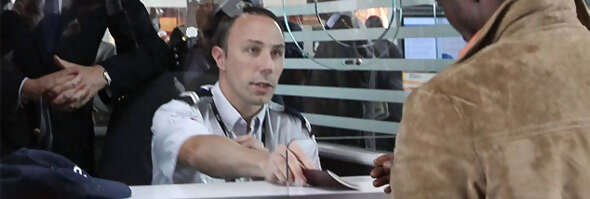NOT JUST CLIMATE CONTROLS France will reinstate border controls for UN climate conference
Posted on 11/09/2015

France will reinstate controls on its borders - normally open to other countries in Europe's free-travel zone - for the period around a major UN climate conference in Paris, the interior minister said Friday.
Authorities are on alert for violent protesters as well as potential terror attacks around the Nov. 30-Dec. 11 conference. Some 80 heads of state including US President Barack Obama, and tens of thousands of other people, are expected in Paris for the conference opening.
Bernard Cazeneuve said on BFM television Friday that the controls will be in place for a month “in the context of terrorist threats that could come and stain this large international gathering that is carrying a grand message for humanity.”
Foreign minister Laurent Fabius said Friday in a news conference that “for obvious security reasons during the conference - and not after- there will be measures to make sure that the crowds of people who will come, don't come here with intentions that are not peaceful.”
Europe's so-called Schengen zone of countries with open borders allows for occasional reintroduction of internal border checks, which some countries have done amid this year's migrant crisis.
France submitted a note to European Union authorities last month announcing border checks at all airports with international flights and at 131 land crossings with Belgium, Germany, Spain, Italy, Switzerland and Luxembourg, according to an EU document. The French note cites Schengen rules allowing controls “when there is a serious threat to public policy.”
France is still reeling from deadly attacks by Islamic extremists in January on satirical newspaper Charlie Hebdo and a kosher grocery. Since then, the country has seen several other smaller attacks or attempts, including when a heavily armed Islamic radical was prevented by young American passengers from attacking a high-speed train in August. France is also bombing Islamic State targets in Syria and Iraq as part of a US-led coalition, and has troops fighting extremists in Africa.
The climate conference is aimed at reaching the most ambitious accord to date for world governments to reduce emissions that cause global warming.
Organizers expect at least 40,000 people in addition to tens of thousands of activists from environmental, human rights and other groups from around the world. A big march is planned through Paris Nov. 29, and protest groups plan to try to blockade the conference site Dec. 11 and 12, as well as several other smaller-scale actions.
France faces routine protests that are largely peaceful but sometimes degenerate into violence by an extremist fringe. The country saw particularly violent protests during a NATO summit in Strasbourg in 2009, when members of the violence-prone “black bloc” attacked police and set a hotel and customs station ablaze, leaving many injured and disrupting official meetings.
The US Embassy in Paris has warned American citizens to be particularly vigilant around the climate conference.
The last time France reinstated national border controls was for a Group of 20 summit in Cannes in 2011.
